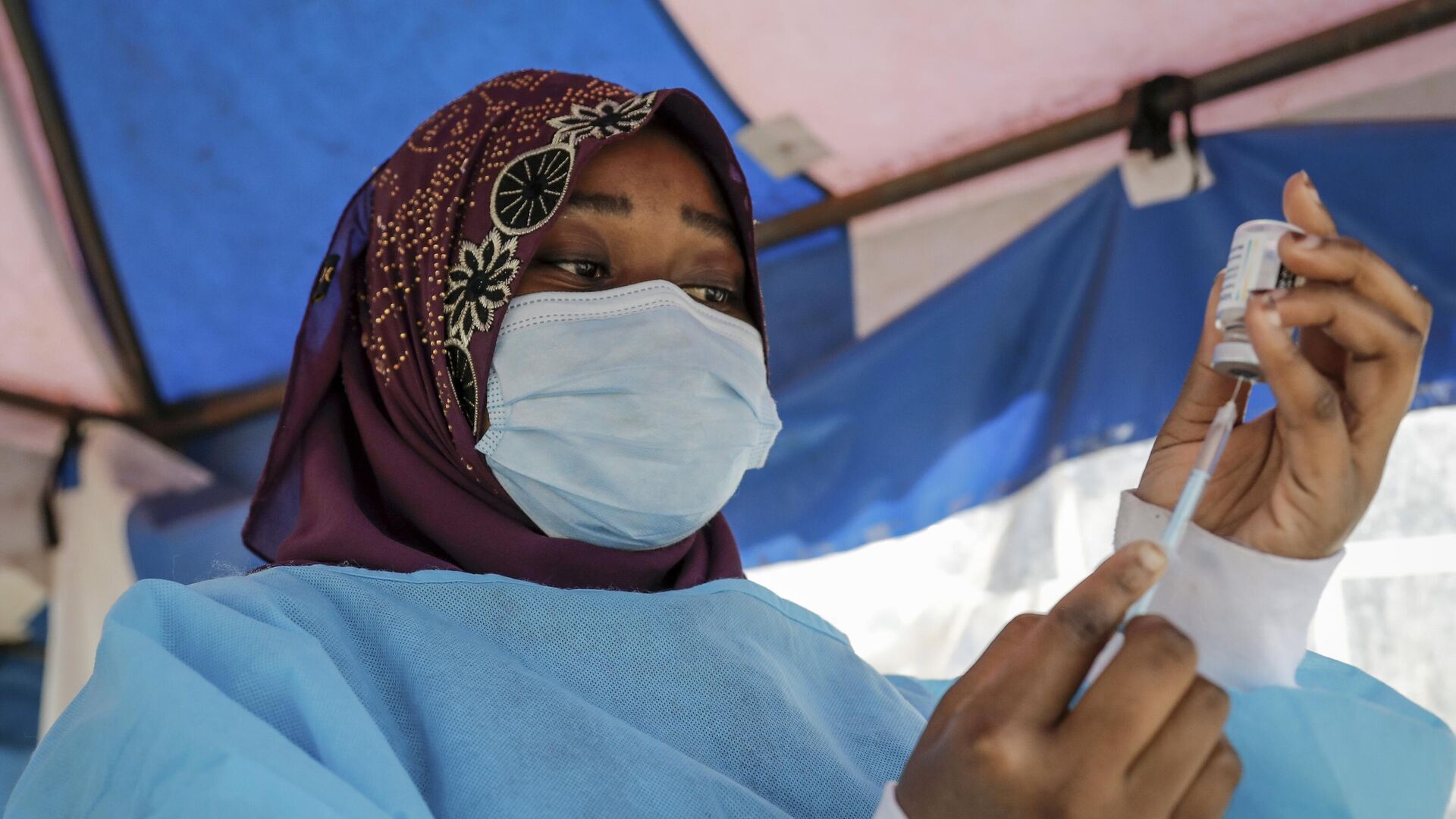https://en.sputniknews.africa/20240409/who-praises-progress-in-african-health-systems-while-identifying-areas-requiring-further-1065994147.html
WHO Praises Progress in African Health Systems While Identifying Areas Requiring Further Improvement
WHO Praises Progress in African Health Systems While Identifying Areas Requiring Further Improvement
Sputnik Africa
African states have made significant progress in health in recent decades, with life expectancy increasing, child and adult mortality decreasing, and some... 09.04.2024, Sputnik Africa
2024-04-09T12:54+0200
2024-04-09T12:54+0200
2024-04-09T13:49+0200
world health organization (who)
health
healthcare
disease
death
life expectancy
hiv/aids
https://cdn1.img.sputniknews.africa/img/07e7/04/16/1058781693_0:0:3071:1728_1920x0_80_0_0_2c16cd8da4fc7b70b473631d546e0232.jpg
Matshidiso Moeti, Regional Director of the World Health Organization (WHO) for Africa, noted last week the progress made by the continent's countries in the field of medicine over the past two decades. Achievements include an increase in women's life expectancy, a decrease in maternal mortality, and significant strides in the fight against various diseases.Furthermore, on the continent, between 2011 and 2021, there was a 26% decline in TB-related fatalities and a 44% and 55% decrease in new HIV infections and AIDS-related deaths, respectively.Moreover, there are other illnesses that are very close to being completely eradicated, such as polio, guinea worm disease, and maternal and neonatal tetanus.Moeti thanked African governments for their commitment to health system reform, including the creation of national health insurance schemes that remove financial barriers to health care. She also emphasized the role of social insurance in eliminating unequal access to health care.However, the official also noted that there are still problems that require firm political decisions.She especially noted the situation with the incidence of HIV: the virus continues to be widespread among the population of people aged 15 and older; estimates put it at 24.3 million in 2021 (3.4% of the total population), up from 15.6 million in 2005.There are also still notable differences in access to essential reproductive, maternity, infant, child, and adolescent health interventions. Furthermore, 8% of people in the African Region still face "catastrophic health costs."It particularly noted progress made in Africa: Malawi, Rwanda, Ethiopia, Uganda, Angola, Morocco, Senegal, Burundi, and Tanzania were cited as examples of countries where the rate fell by more than 75%.
https://en.sputniknews.africa/20240314/global-child-deaths-reach-historic-low-in-2022-un-reports-noting-progress-in-africa-1065535208.html
Sputnik Africa
feedback@sputniknews.com
+74956456601
MIA „Rossiya Segodnya“
2024
Christina Glazkova
https://cdn1.img.sputniknews.africa/img/07e7/0b/07/1063380906_0:0:673:674_100x100_80_0_0_79628b4d0cd9f29291a57aa13bbf9e7a.jpg
Christina Glazkova
https://cdn1.img.sputniknews.africa/img/07e7/0b/07/1063380906_0:0:673:674_100x100_80_0_0_79628b4d0cd9f29291a57aa13bbf9e7a.jpg
News
en_EN
Sputnik Africa
feedback@sputniknews.com
+74956456601
MIA „Rossiya Segodnya“
Sputnik Africa
feedback@sputniknews.com
+74956456601
MIA „Rossiya Segodnya“
Christina Glazkova
https://cdn1.img.sputniknews.africa/img/07e7/0b/07/1063380906_0:0:673:674_100x100_80_0_0_79628b4d0cd9f29291a57aa13bbf9e7a.jpg
world health organization (who), health, healthcare, disease, death, life expectancy, hiv/aids
world health organization (who), health, healthcare, disease, death, life expectancy, hiv/aids
WHO Praises Progress in African Health Systems While Identifying Areas Requiring Further Improvement
12:54 09.04.2024 (Updated: 13:49 09.04.2024) Christina Glazkova
Writer / Editor
African states have made significant progress in health in recent decades, with life expectancy increasing, child and adult mortality decreasing, and some diseases having been almost eradicated. Building on these achievements, the continent continues to work to solve the remaining challenges.
Matshidiso Moeti, Regional Director of the World Health Organization (WHO) for Africa,
noted last week the progress made by the continent's countries in the field of medicine over the past two decades. Achievements include an increase in women's life expectancy, a decrease in maternal mortality, and significant strides in the fight against various diseases.
"[...] We have made significant progress in ensuring better health outcomes for our people over the past decade. [...] From 2000 to 2020, the life expectancy of African women increased from 54 to 67 years; the maternal mortality ratio decreased by 33% [...], and the number of children dying before the age of 5 was reduced by 50% from 2000 to 2017," she said.
Furthermore, on the continent, between 2011 and 2021, there was a 26% decline in
TB-related fatalities and a 44% and 55% decrease in new HIV infections and AIDS-related deaths, respectively.
Moreover, there are other
illnesses that are very close to being completely eradicated, such as polio, guinea worm disease, and maternal and neonatal tetanus.
Moeti thanked African governments for their commitment to health system
reform, including the creation of national health insurance schemes that remove financial barriers to health care. She also emphasized the role of social insurance in eliminating unequal access to health care.
However, the official also noted that there are still problems that require firm political decisions.
"We know that many in our region still need help with access to quality essential health services due largely to unfulfilled rights. This is further compounded by protracted and ongoing crises such as conflicts, climate change, food insecurity, disease outbreaks, and epidemics," Moeti added.
She especially noted the situation with the incidence of
HIV: the virus continues to be widespread among the population of people aged 15 and older; estimates put it at 24.3 million in 2021 (3.4% of the total population), up from 15.6 million in 2005.
There are also still notable differences in access to essential reproductive, maternity, infant,
child, and adolescent health interventions. Furthermore, 8% of people in the African Region still face "catastrophic health costs."
Last month, the UN Inter-Agency Group for Child Mortality Estimation reported that the number of children dying before reaching the age of five has reached a historic low, falling to 4.9 million in 2022.
It particularly noted progress made in Africa: Malawi, Rwanda,
Ethiopia, Uganda, Angola, Morocco, Senegal, Burundi, and Tanzania were cited as examples of countries where the rate fell by more than 75%.



